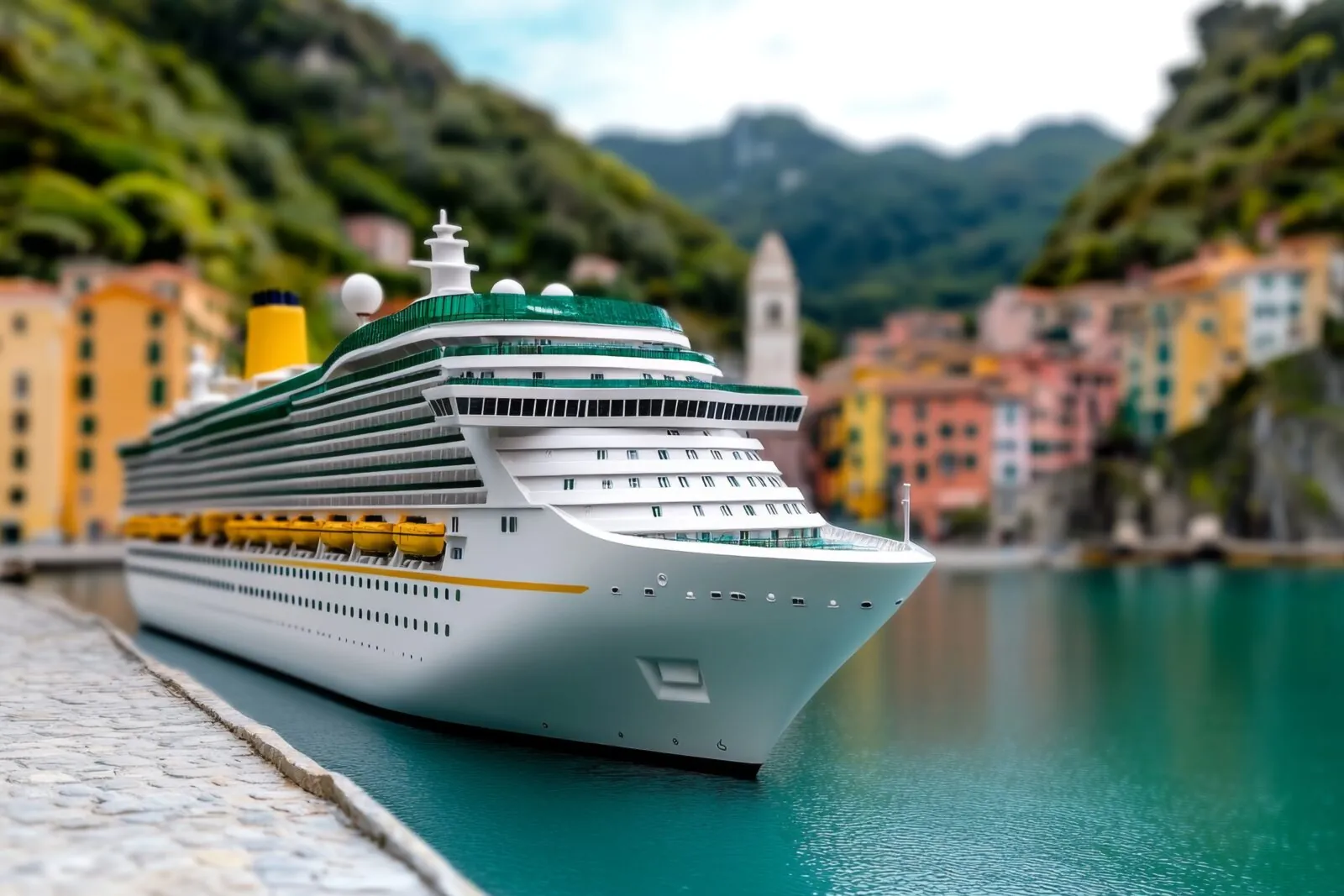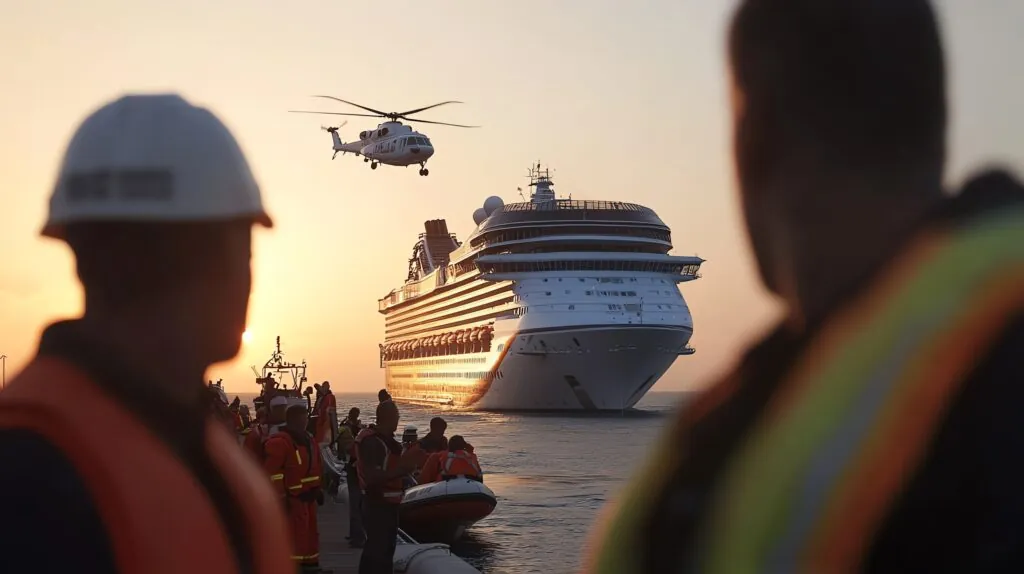What to Do If You Are Injured During a Shore Excursion Booked Through a Cruise Line
A cruise vacation offers an exciting blend of relaxation and adventure. While onboard amenities provide luxury and entertainment, many passengers look forward to shore excursions, which allow them to explore different destinations. These excursions range from sightseeing tours to adventure activities such as snorkeling, hiking, zip-lining, or ATV riding.
However, accidents can happen. When a passenger suffers an injury during a shore excursion, determining who is responsible can be legally complex. Many cruise lines attempt to limit their liability by outsourcing excursions to third-party operators. This means that if something goes wrong, the cruise line may claim it has no responsibility. However, there are exceptions, and passengers injured due to negligence or misrepresentation may have grounds for legal action.
This guide provides a comprehensive overview of cruise excursion injuries, including liability issues, steps to take after an accident, compensation options, and legal considerations. Understanding your rights is essential to ensure you get the justice and compensation you deserve.
Understanding Liability for Shore Excursion Injuries
Determining who is responsible for an injury that occurs on a shore excursion can be complicated. Liability can fall on the cruise line, the third-party excursion provider, or even the injured passenger depending on the circumstances.
Cruise Line Liability
Cruise lines are responsible for ensuring passenger safety while onboard, but their liability extends beyond the ship under certain conditions. A cruise line may be held accountable for an injury during a shore excursion if they misrepresented the safety of an excursion in marketing materials, failed to properly vet the tour operator, failed to warn passengers about known risks, or if the excursion was run directly by the cruise line or heavily promoted as part of the cruise experience.
Third-Party Tour Operator Liability
Most shore excursions are operated by independent companies that work with cruise lines. While these operators are supposed to meet industry safety standards, some may cut corners to maximize profits, increasing the risk of accidents. If an injury occurs due to faulty equipment, inadequate safety measures, reckless behavior by staff, or poorly maintained facilities, the excursion provider could be held responsible.
Passenger Responsibility
In some cases, passengers themselves may be partially responsible for their injuries. This typically occurs when they ignore safety instructions, fail to disclose pre-existing medical conditions, or engage in reckless behavior. However, even if a passenger was partially responsible, they may still be entitled to compensation if negligence played a role in the incident.
Common Causes of Shore Excursion Accidents
Shore excursion injuries can occur in many different ways. The following are some of the most common causes.
Transportation Accidents
Many excursions involve transportation in buses, vans, taxis, ferries, or speedboats. If the vehicle is poorly maintained, driven recklessly, or operated by an unlicensed driver, passengers are at risk of accidents.
Slip and Fall Injuries
Passengers may slip and fall due to wet or uneven surfaces, poorly maintained pathways, inadequate lighting in walkways, or unstable docks and piers. These accidents can lead to broken bones, head injuries, spinal damage, or severe bruising.
Adventure & Water Sports Accidents
Many passengers participate in activities such as snorkeling, scuba diving, jet skiing, parasailing, zip-lining, and hiking excursions. While these activities can be thrilling, they carry significant risks if equipment is faulty, instructors lack proper training, or there is no emergency plan in place.
Medical Emergencies in Remote Locations
Some excursions take place in remote areas where medical care is limited or nonexistent. If a passenger suffers a serious injury or medical emergency such as a heart attack or allergic reaction, they may not receive immediate medical attention. This delay can worsen the injury and increase liability.
Steps to Take After a Shore Excursion Injury
If you are injured during a cruise shore excursion, taking immediate action can help protect your health and legal rights.
1. Seek Immediate Medical Attention
Even if your injury seems minor, get checked by a medical professional. Some injuries, such as head trauma or internal bleeding, may not show symptoms right away. Delayed medical treatment can also harm your legal case if you later seek compensation.
2. Report the Injury
Notify both the excursion operator and the cruise ship’s staff about the incident. Request a written incident report and ensure you obtain a copy. A formal report can serve as critical evidence if you need to file a claim.
3. Gather Evidence
To strengthen your case, collect as much evidence as possible. Take photos or videos of the accident scene, your injuries, and any hazardous conditions. Obtain contact information from witnesses who saw the incident. Keep copies of all medical records, receipts, and reports related to your treatment.
4. Review Your Travel Insurance Policy
Check your travel insurance to see if it covers medical expenses, emergency evacuation, or trip interruption due to injury. Some policies exclude coverage for high-risk activities like scuba diving or ATV riding, so it is important to review your policy carefully.
5. Contact a Maritime Injury Lawyer
If your injury is severe and the cruise line or excursion provider denies responsibility, consulting an experienced maritime injury lawyer is the best way to understand your legal options.
Can You Sue the Cruise Line for an Excursion Injury?
Yes, but lawsuits against cruise lines can be challenging due to the fine print in cruise contracts. However, passengers may still have a case if the cruise line was negligent.
When Can a Cruise Line Be Held Liable?
A cruise line may be responsible if:
- The excursion was marketed as safe but was dangerous.
- The cruise line failed to properly screen the tour provider.
- There was a history of prior accidents that the cruise line failed to disclose.
- The injury resulted from poorly maintained transportation or unsafe conditions.
Legal Deadlines
Most cruise contracts require passengers to:
- File an injury claim within six months.
- File a lawsuit within one year.
Missing these deadlines could result in losing your right to sue.
Compensation for Injuries During a Cruise Excursion
Passengers injured during a shore excursion may be entitled to compensation.
Types of Compensation
Compensation may cover medical expenses, including hospital bills, medication, and follow-up care. Injured passengers may also receive lost wages if they miss work due to their injuries. Pain and suffering damages may be awarded for physical pain, emotional distress, and a reduced quality of life. If the injury leads to a long-term disability, additional benefits may be available.
Filing a Claim
The process of filing a claim often involves gathering medical records, accident reports, and financial documents. Negotiating with insurance providers or legal teams from the cruise line can be complex, making it essential to seek legal counsel to maximize your chances of a fair settlement.
Frequently Asked Questions (FAQ) About Cruise Shore Excursion Injuries
What should I do if I get injured during a shore excursion?
If you suffer an injury on a cruise excursion, seek medical attention immediately. Report the injury to the tour operator and the cruise line as soon as possible. Gather evidence, including photos, videos, witness statements, and medical records. Review your travel insurance policy to check if your medical expenses are covered. If the cruise line or excursion provider denies responsibility, consult a maritime injury lawyer for legal advice.
Can I sue the cruise line if I get injured on an excursion?
Whether you can sue the cruise line depends on the circumstances of your injury. If the cruise line directly operated the excursion, misrepresented its safety, or failed to properly vet the tour operator, you may have legal grounds for a lawsuit. However, many cruise lines include liability waivers in their contracts, which can complicate claims. A maritime injury lawyer can assess your case and determine whether you can hold the cruise line accountable.
Is the cruise line responsible for injuries that happen during an excursion?
Cruise lines often argue that they are not responsible for injuries that occur during shore excursions, especially if they are operated by third-party companies. However, they may be liable if they knowingly promoted an unsafe excursion, failed to warn passengers about risks, or did not properly screen the excursion provider for safety standards. Liability can depend on the details of the contract between the cruise line and the tour operator.
Does travel insurance cover injuries sustained on a shore excursion?
Travel insurance may cover medical expenses, emergency medical evacuation, and trip interruption due to an injury. However, coverage varies depending on the policy. Some travel insurance plans exclude high-risk activities such as scuba diving, zip-lining, or ATV riding. It is important to review your policy before participating in excursions to ensure you have adequate coverage.
What types of injuries are most common during cruise shore excursions?
Some of the most common injuries include slip and falls, transportation-related injuries, water sports accidents, and injuries from adventure activities. Slippery docks, uneven walkways, and poorly maintained vehicles contribute to accidents. Water sports such as snorkeling and jet skiing can result in injuries due to defective equipment or lack of proper safety instructions. Adventure activities like zip-lining or hiking may also lead to serious injuries if safety measures are not followed.
Contact The Cruise Injury Law Firm Today
If you were injured during a shore excursion, you don’t have to navigate the situation alone. Cruise lines and excursion providers often try to avoid liability, but legal options exist.
Taking action immediately is important. Document everything, including medical records, photos, and reports. Consult a maritime injury lawyer to explore legal options. Act quickly to meet legal deadlines.
If you need legal guidance, contact The Cruise Injury Law Firm to discuss your case. Protect your rights and seek the compensation you deserve.






